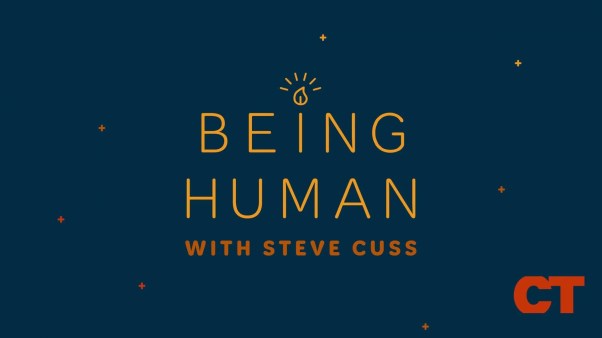Several years ago, my eyes stopped on a two-panel cartoon that made me both laugh and grimace. The first had a typical Jordan River scene of a familiar bearded figure in camel’s hair dipping someone under the water, with the caption “John the Baptist.” The second depicted a similar scene, but the penitent was held under the water, thrashing about for life, while bubbles indicated drowning. That one was captioned “John the Southern Baptist.”
Once upon a time, the old cartoon could have prompted smugness in Christians of other denominations, but not anymore. In one respect, we are all Southern Baptists now.
Years ago, historian Martin Marty spoke of the “Baptistification” of American religion—by which he meant that the individualistic creedalism, the entrepreneurial drive, and the voluntary-society model of the church were so consistent with the American ethos that almost every Christian communion—regardless of polity or theology—was starting to reflect it.
For Baptists, this would seem consistent with the talking point for generations that the sort of polity practiced in Baptist churches was the model for the kind of democracy to which America aspired.
Increasingly, though, American democracy is starting to look more and more like a Baptist congregational business meeting. The theory of “the priesthood of the believer” and every voice counting is giving way to the darker reality of knife fights, splits between factions, and the social Darwinism of the way the meanest and most aggressive people can dictate the terms of debate. Whether those fights are over the color of the carpet in the vestibule or how to end a global pandemic, the so-called elites are in constant fear over populist uprisings and the populist uprisings are often themselves manipulated by those who hope to be elites.
Churches that once thought they could be protected from constant threats of polarization and bitterness by a polity of bishops or presbyteries now find that the same factors are at work, including the fake controversies and threats of withholding money or walking away. Even the Pope sometimes seems to be at the mercy of a Vatican bureaucracy with the same dynamics as a deacon board in Andalusia, Alabama.
To see the result of all of this, just look to any southern community where every “First Baptist” and “Second Baptist,” every “Harmony Baptist Church” and “New Harmony Baptist Church” tell a sad story of some past schism, often with years of unarticulated bitterness on all sides.
In the short term, nothing is more invigorating to some people than a good church controversy. People show up who haven’t been around since vacation Bible school. But in the end, the church is emptied of all but those who want to reenact old fights, with narrowing issues and winnowing numbers.
That’s why some newer churches would never put “Baptist” in their names, on their signage, or on their websites. In some churches, congregants find out they are Southern Baptists only in the last stage of new member orientation—almost the way Scientologists discover only after a certain stage about Xenu of the Galactic Confederacy.
It does not have to be with this way. The fighting of the Baptist movement is a shadow side to something we really would do well to emulate: a people who, at their best, emphasize the necessity of personal conversion, an amazing grace that means pulpwood haulers and homeless veterans have just as much say as business tycoons and senators.
Baptists—whether globally or locally—always tend to be at their worst when in control of some earthly power and always at their best when speaking from the margins. Contrast Prohibition with the Baptist work for religious liberty in the founding era or the Baptist leadership in the civil rights movement. That same sort of dynamism is at work even now with Chinese Methodists meeting in secret, African Anglicans planting churches all around the world, and first-generation American Hispanic Pentecostals outpacing the established churches around them with evangelism and service (even in communities where they fight the nativist assumption that they are all “illegal” and “alien”). Where witness and testimony—not heresy hunting and power wrangling—are central, there all of us who are evangelical Christians can learn from the best kind of Baptists.
Only then can we show the world that no matter how we baptize, we remember the gospel of the Jordan River. Only then can we show our culture that there’s a difference between immersing and drowning.
Russell Moore leads the Public Theology Project at Christianity Today.









